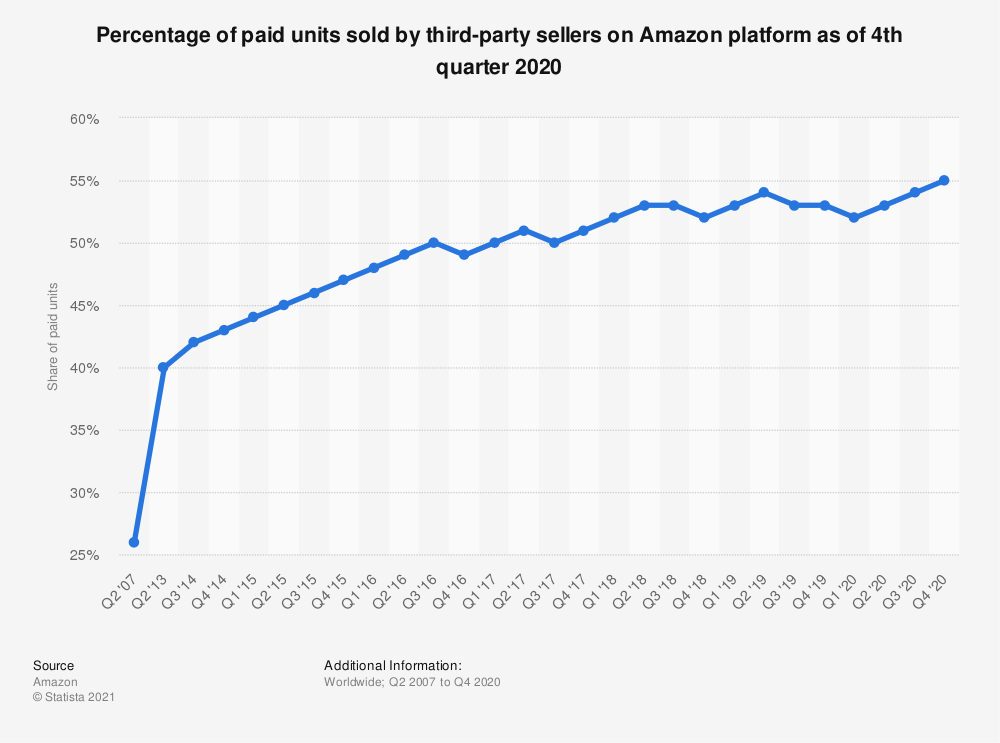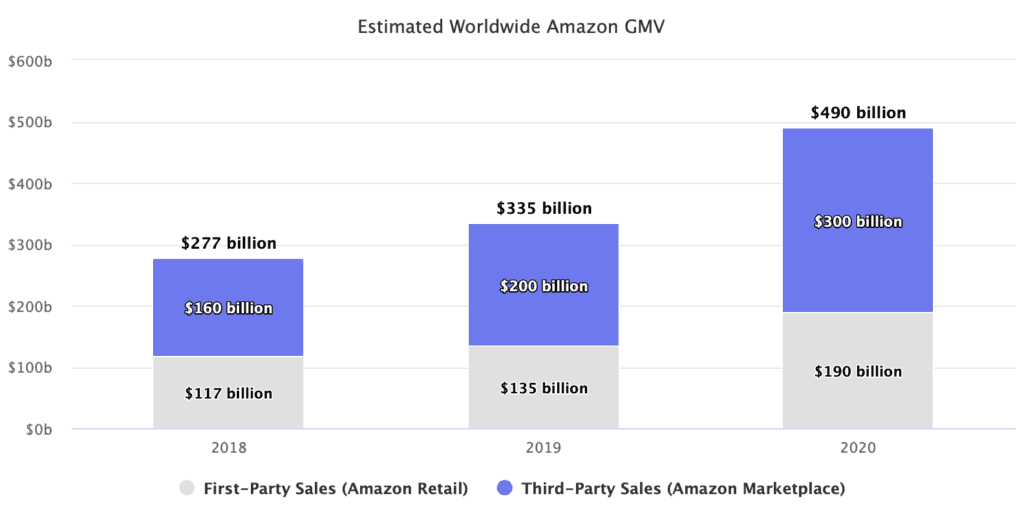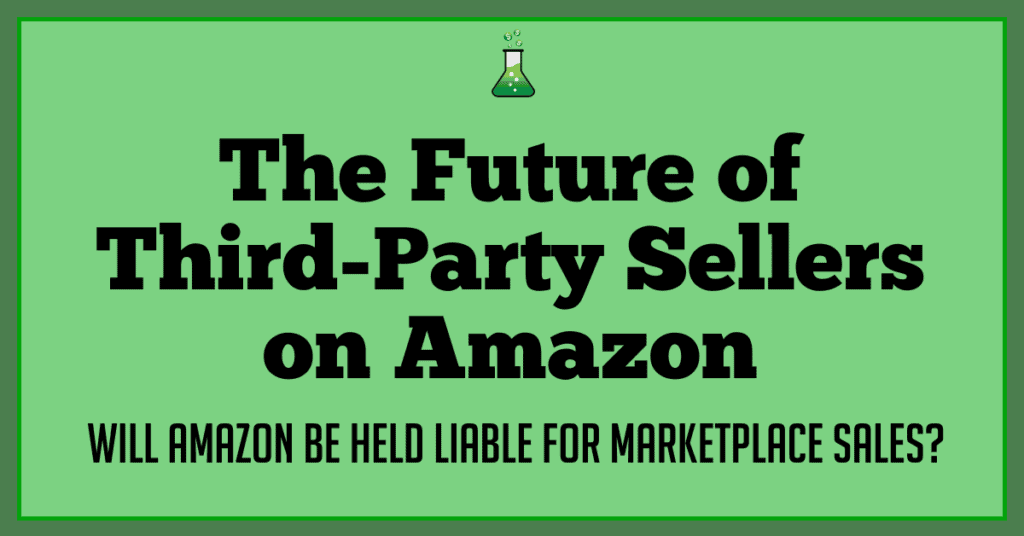“You can be sure Amazon is rewriting all its rules for third-party sellers, and it’s doing it today.”
This quote comes from Christopher Dolan in an article from the LA Times about an April 2021 California appeals court ruling that Amazon is liable for all products sold on their website, including those sold by third parties.
The question we’re all asking now is – how will this affect us, the third parties doing the selling?
There are a lot of articles out there the explore this issue from a consumer’s perspective, here we’ll be exploring what you need to know as a seller.
This Has Happened Before – With Confusing Results
The first thing you should be aware of is that this ruling is not unique. There have been multiple lawsuits in the past that have centered on Amazon’s liability for sales from third parties.
There was a case in Pennsylvania that centered on a retractable dog leash that left a woman partially blinded. An appeals court said Amazon could be held liable, but that ruling was later vacated in February 2020 when a petition was granted for a rehearing. This was due to make its way to the PA supreme court, but then Amazon settled the case outside of the courts.
In August 2020, the California Fourth District Court of Appeals also reversed an earlier decision by a lower court regarding whether Amazon could be held liable for a laptop battery that exploded on a woman’s lap.
We bring up these other cases because it’s important to understand that many of the changes that will result from these decisions have been being rolled out for a while now. Many sellers have noticed and reported changes like increased authenticity checks and more difficulty getting approved to sell in certain categories. That doesn’t mean there won’t be more changes to come though.
What’s the big deal with these cases?
Prior to these cases, the assumption has been that sellers on online marketplaces are responsible for the items they sell. The most recent court case is stating that Amazon is liable for items sold by third-party sellers on their marketplace.
Amazon currently lets just about anyone sign up for a seller account. There are some requirements, but there isn’t any significant vetting required to become a seller on the platform. This has worked just fine since the marketplaces didn’t think they were on the hook for problems that result from items sold by 3rd party sellers.
If it turns out that marketplaces are found to be liable for all items sold on their platforms, it changes the risk profile dramatically. Rather than collecting a relatively risk free commission for connecting a buyer and seller, they now are taking on risk on each sale that is made.
This could impact who marketplaces allow to sell on their platforms, the fees they charge, insurance requirements, and more. We’ll explore this in more detail throughout the post.
The importance of 3rd party sellers on Amazon
To get a full picture of what is likely to happen in the future, it’s important to take a look at the role of 3rd party sellers on Amazon.
As you can see from the graph below from Statista, they account for about 55% of all sales that happen on Amazon as of Q4 2020:

Through the commissions, fulfilment fees, and all other selling fees, third-party sellers make a huge amount of money for Amazon.
Amazon doesn’t release a lot of data about this, but Marketplace Pulse recently did a great breakdown on Amazon’s Gross Merchandise Volume in 2020. Here’s an image they share in the post that shows you both the growth of third party sales and the ratio of third party sales to their own:

To further put it in perspective, this Amazon news release states that during Q4 2020 third party sellers sold almost a billion products on their platform.
3rd party sellers on Amazon are clearly very important to the platform, and I think that it’s a safe bet that Amazon wants to continue to working with 3rd party sellers. But they will likely add some additional restrictions to ensure that things run smoothly and they aren’t taking on unnecessary risk.
Will Amazon put further restrictions on third-party sellers?
We’ve seen people claim that Amazon is just going to make selling as a third party so difficult that it won’t be worth doing anymore. As we discussed in the section above, this is a very very unlikely scenario.
Over the past few years, Amazon has actually been aiming to increase sales from third-party or “marketplace” sellers.
The limiting factor to first party sales is the amount of resources Amazon has available to buy and manage products. The limiting factor to third party sales is the reach of the marketplace. Since sellers like you and I are covering the costs of inventory and fulfillment, the size of the marketplace can be scaled to much, much higher levels than it could be if the focus was on first party sales. It’s in Amazon’s best interest to invest it’s money into marketing, faster fulfillment, and greater overall reach while letting third parties get the products on the platform.
Whether or not we’ll see additional restrictions or verifications methods implemented remains to be seen, but Amazon has a financial incentive to keep these restrictions to a minimum. We’ve reached out to people involved with the recent California case to see what changes they think are coming but have not heard back yet. If you have any information or predictions, please let us know in the comments.
A couple things that Amazon is likely to implement include requiring sellers to have insurance, and having stricter policies on exactly what can be sold on the platform.
Insurance is already required for professional sellers who are doing $10,000 in sales per month for 3 consecutive months, but Amazon currently rarely verifies that from sellers. I think verifying sellers have the required insurance will become a common occurrence if marketplaces are liable for items sold on their platforms.
The other policy change I could see happening is around what items can be sold on the marketplace. For items that are deemed “higher risk” there could be additional requirements for sellers to sell these items. It could be safety testing documents for the products, invoices from proven suppliers, or take a different form entirely.
Of the main sourcing methods I think this could hit private label and arbitrage sellers the hardest.
For private label sellers, there could be new requirements for product safety testing, and insurance in ways that aren’t enforced today. This could make it more challenging to launch new products that are deemed higher risk, and also could increase overhead depending on the type of insurance required.
For private label sellers my bet is that this will have the largest impact on untested imported products.
For arbitrage sellers, this could change things as well. Amazon would potentially be more interested in making sure products are coming directly from authorized sources. This could be requiring invoices to show sellers are buying directly from the brand itself or their authorized distributors. It’s hard to say exactly what form the requirements would take, but I think it’s fair to say there’s a fairly clear path for Amazon to further vet arbitrage items.
What should you do to avoid headaches?
To be clear, this entire post is about things that could potentially happen. I don’t have a crystal ball, and I don’t know exactly what will come to pass. I do think that at least going through the questions in this post as a thought exercise can only help your business in the future.
This is a good opportunity to do an audit of your sourcing practices and think about how you can diversify your income streams in the future.
If Amazon sales suddenly dried up overnight, would you be able to adapt? Do you have any alternate sales channels? Do you understand other marketplaces enough to easily migrate?
While we utilize Amazon for the vast majority of our sales, that is only because it is currently the best marketplace in terms of reach and sales potential. If that were to change, we would adapt. We sell on other marketplaces, and we have our own websites where we sell our own brands. If you are wholly dependent on Amazon, now is a good time to think about getting set up on other marketplaces or building out your own store.
The other thing to do is to take stock of your sourcing methods. My business practices arbitrage, wholesale, and selling our own brands. I like having diverse inventory streams because it allows me to quickly adapt to changing market conditions and take advantage of the different benefits each sourcing model offers.
Like I said above, certain types of private labeling have the potential to be hardest hit by the changes to comes. If there is a move for increased safety and quality controls, this will hit small brands with mass replicated imports the hardest.
If you have your own brand, now is a good time to review your quality control procedures.
If you currently only source via arbitrage, now is a good time to think about adding some additional sourcing methods.
I expect wholesale sourcing will be among the safest and simplest sourcing strategies for Amazon moving forward because with wholesale you deal with established brands with some level of quality control and responsibility. The wholesale model essentially allows you to present Amazon with an invoice that says “this product is authentic, these are the people who made it, and here is proof I’m allowed to be selling it”.
Wholesale can be tricky to get started with as there are “gatekeepers” you have to get past before being able to place orders for products. This doesn’t exist in the private label world because the products you are buying are ultimately wholly your responsibility since they are unbranded or will have your own brand. Suppliers are happy to sell to pretty much anyone.
You can learn more about getting started with wholesale on Amazon in this post.
What do you think?
What do you think will be the overall impact for sellers? Who will it affect the most? Do you plan on making any changes to your business?
Let us know in the comments below.


My daughter has been successful as a third party seller for almost 9 years. For the past 6 or 8 months, Amazon has been making it so difficult for her to sell. She sells some toys, but mostly party goods. (she does it on a small scale). They’ve been asking for child product safety sheets and pulling brand items she’s sold for years, like character backpacks and folders. Do you have any ideas for how she can work through all of this?
Thank you.
Hi Rifka,
Thanks for your comment, and this has been something that has been happening more frequently when selling toys and items for children.
The main thing I’d recommend is looking into wholesale sourcing, as if you are working with a manufacturer or distributor then typically obtaining the needed safety sheets isn’t a problem.
Best Regards,
Ryan
Hi,I was busy with paperwork for a long time to open an account with Amazon. Then I listed the arbitrage products. I started a company and started looking for a wholesaler. By the way, I opened a category. Actually, all this is progressing slowly. Perhaps because a US citizen lives in the US, he has more opportunities, it is easier for them to establish a company, to communicate. There are a lot of problems for those who just want to do this internationally, starting with the payment method. You have a different challenge for every document you receive from the state. You spend hours trying to find a wholesaler that won’t bother you, contact them, and find a product that won’t be a problem. You should examine everything from the information on the invoice to the feature of the product you purchased. So far I have not had to send an invoice or have had a problem. But while I am in the process of finding a wholesaler, it makes my hands shake to examine some products. For example, I do not look at categories such as electronics, cosmetics, baby, cleaning products. For these, Amazon offers the option to request photos, invoices for a product and accept that the account may be suspended and require additional paperwork. Restrictions have always existed and more specific controls will and will be encountered in these courts. Thank you for reading.
Thanks for sharing your experience.
Best Regards,
Ryan
Insurance held by 3P sellers seems to be the best hedge that Amazon has; to protect themselves IMHO.
Can you cover this topic, and where the best insurance can be found for 3P Sellers?
Hi Ali,
Thanks for your comment, and I agree on insurance being a good hedge for Amazon. I’ll add that to my list of potential blog topics to write about in the future, thanks for the suggestion.
Best Regards,
Ryan